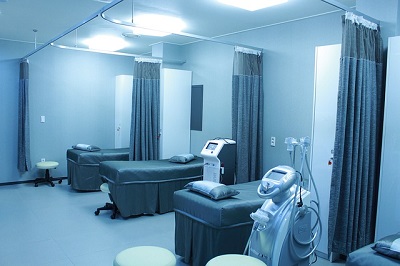Hydrosalpinx: Frequent Checks and Excessive Anxiety Affect Pregnancy!
Hydrosalpinx, or fluid accumulation in the fallopian tubes, can be classified into three severity levels: mild, moderate, and severe. In mild cases, patients often experience no noticeable symptoms and may only discover the condition during a gynecological examination or imaging test.

Moderate hydrosalpinx can lead to symptoms like lower abdominal pain, a feeling of pressure in the lower back, and increased vaginal discharge. In severe cases, patients may experience systemic symptoms such as fever, chills, nausea, and vomiting.
For many women eager to become mothers, pregnancy is a significant milestone. When diagnosed with hydrosalpinx, concerns about conceiving often prompt women to undergo frequent check-ups, hoping to stay informed about changes in their condition and the effectiveness of their treatment.
However, frequent examinations can have some adverse effects:
Firstly, frequent ultrasound exams and hysterosalpingograms have a certain degree of invasiveness, potentially causing trauma to the body and increasing the risk of infection. Additionally, these exams require significant time and money, placing economic and psychological burdens on patients.
In addition to the stress of frequent check-ups, patients often find that this anxiety only adds to their worries about conceiving. Unfortunately, this heightened stress can have severe implications for pregnancy.
When women are anxious, their brains release high cortisol levels and other stress hormones. These hormones can disrupt the normal functioning of the hypothalamic-pituitary-ovarian axis, affecting the secretion of gonadotropin-releasing hormone. This imbalance can interfere with the production of follicle-stimulating hormone (FSH) and luteinizing hormone (LH), ultimately impacting egg development and ovulation.
Moreover, anxiety can alter the uterine environment. Prolonged stress may lead to abnormal contractions of the uterine muscles, putting the uterus in a tense state that is not conducive to the implantation and development of a fertilized egg. Even if implantation occurs successfully, anxiety can still affect embryonic development and increase the risk of miscarriage.
Research indicates that women with higher levels of anxiety have significantly lower pregnancy success rates compared to those with a more relaxed mindset. This effect extends beyond natural conception; for women undergoing assisted reproductive technologies, such as in vitro fertilization (IVF), anxiety can also diminish the chances of successful treatment.
Since frequent examinations and anxiety are detrimental to pregnancy, how should we correctly approach hydrosalpinx and pregnancy?
1. Choose the appropriate treatment plan
Once diagnosed with hydrosalpinx, promptly communicate with your doctor to choose an appropriate treatment plan based on the severity of the condition, age, and fertility needs.
For mild hydrosalpinx, medication treatments such as antibiotics and traditional Chinese medicine like Fuyan Pill can be chosen to control inflammation and promote fluid absorption.
For moderate to severe hydrosalpinx, surgical treatments such as salpingostomy, tubal ligation, or salpingectomy may be necessary. After surgery, the Fuyan Pill can be taken to consolidate the treatment effect.
2. Adjust the mindset
Maintaining an optimistic mindset is crucial for pregnancy. You can relieve stress and relax by moderate exercise, listening to music, reading, or socializing with friends. Seeking help from a psychologist and learning some psychological adjustment methods, such as deep breathing, meditation, and cognitive behavioral therapy, can also help overcome anxiety.
3. Arrange examinations reasonably
Schedule examinations according to the doctor's advice, without increasing the frequency on your own, to avoid unnecessary stress and burden. Trust the doctor's treatment plan and actively cooperate with the treatment, patiently waiting for the results between examinations.
4. Healthy lifestyle
Developing healthy living habits is also essential for increasing the chances of pregnancy. Maintain a balanced diet, consuming protein, vitamins, and minerals-rich foods. Avoid staying up late and ensure adequate sleep. Engage in appropriate physical exercise to enhance fitness and boost immunity.
You may also be interested in:
Engaging in Intercourse During Menstruation? Beware of Salpingitis Taking Advantage!
previous pagePay Special Attention to These Hydrosalpinx Symptoms!
next page- Hydrosalpinx and IVF: What Are the Chances of Successful Embryo Implantation?
- Is Hysterosalpingography Harmful to the Body?
- Can Hydrosalpinx Be Thoroughly Drained by Aspiration Surgery?
- Pay Special Attention to These Hydrosalpinx Symptoms!
- Hydrosalpinx: Frequent Checks and Excessive Anxiety Affect Pregnancy!
Testimonials
- Adenomyosis with Ureaplasma Urealyticum Cured by Fuyan Pill
- Tubal blockage with hydrosalpinx can be cured by TCM shortly
- Fuyan Pill Helps A woman with Adenomyosis Get Pregnant
- A Woman with Hydrosalpinx Is Cured with Fuyan pill
- Pelvic Inflammatory Disease Testimonials
- Irregular Vaginal Bleeding and Endometrial Thickening Cured by Fuyan Pill
- Pruritus Vulvae and Frequent Urination: Mycoplasma Infection Cured after 2 Courses



